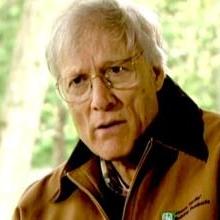dementia
LET'S SAY YOU are a third of the way through Julie Otsuka’s latest book, The Swimmers, and someone asks you to describe the story. If you have encountered her second novel, The Buddha in the Attic, you might comment on the familiar reliability of the collective “We,” the prevalence of lists, the cataloguing of characters’ habits and choices.
But if you prefer to be concise (so you can return to your reading), you would say the novel is about a group of swimmers who belong to an underground pool in their town. Above ground, they struggle with “bad backs, fallen arches, shattered dreams, broken hearts, anxiety, melancholia, anhedonia,” among other afflictions. But down below, in the pool, they can rely on the consistency of lanes, their lap counts, and their rules. They can even tolerate occasional rule breakers and bad management. Everything makes sense until a mysterious crack appears at the bottom of the pool.
Soon, one crack develops into many. When experts cannot find the origin of the anomaly, it leads to one conclusion: The pool must close.
The film immerses us in the mind of 80-year-old Anthony (Anthony Hopkins) as he navigates the onset of dementia and his increasing dependence on his daughter, Anne (Olivia Colman). In a recent interview with Zeller, he told me the play was based on his own experience of caring for his grandmother as she battled dementia, when he was just a teenager.
MY MOTHER LIVED WITH dementia for more than 20 years. My family members all experienced grief that was deep and complex, yet there were surprising moments with Mom that I found profoundly spiritual. As I spent time with her through the stages of her Alzheimer’s, I experienced a few times when she reached a place more complex and lucid than our understanding of her medical condition might allow.
As a scientist with an interest in chaplaincy, I wondered: What is known about this intersection of dementia and spirituality? What does the church say about dementia? How might all this inform our ministry to those experiencing dementia?
“Dementia” itself is a difficult word. Its origin comes from “de-” (undoing) “mentia” (mind). Already this label stigmatizes a person. A preferred term might be ADRD: Alzheimer’s Disease and Related Diseases. Alzheimer’s is a brain disease thought to cause some 60 to 80 percent of dementia cases. Related diseases include vascular, frontotemporal, and Lewy Bodies types of dementia. All have symptoms of memory loss, cognitive loss, and eventually physical loss (such as the inability to walk), caused by progressive damage and death of brain cells.
Churches in Great Britain, and increasingly in the U.S., have developed ways to become “dementia friendly.” Here are a few suggestions.
- Educate church staff and laity to have at least a basic understanding of dementia and how it affects a person physically, emotionally, and intellectually.
- Ensure that the worship space is safe and welcoming to the elderly and cognitively impaired.
- Provide a volunteer companion for the person with dementia to allow the caregiver to relax a bit and worship.
WALTER WINK IS known as a lectionary commentator with lucid biblical insight, a chronicler of nonviolent practice, a scholarly essayist, an arrestee in direct action, and one of the most important theologians of the millennium’s turn. He effectively named “the domination system” and its collusive principalities, opened up biblical interpretation to an integrated worldview, and brought the New Testament language of power back on the map of Christian social ethics.
Two years ago he crossed over to God, joining the ancestors and saints. His first two posthumous books have now appeared. They make for good companion volumes. Let me weave back and forth between the two. Walter Wink: Collected Readings is the anthology of his core work. Just Jesus: My Struggle to Become Human is a short autobiography. The second is the more remarkable—because it’s so rare that a world-class scripture scholar should tell his or her own story in relation to encounters with the biblical witness. And all the more so because it was a project undertaken after he was diagnosed with Lewy body dementia.
Given the dementia, the book itself is an effort of his “struggle to become human.” An early version of the manuscript included oral history and other sources narratively adapted to a first-person voice, but in the end his partner in all things, June Keener Wink, pressed for it to be pure Walter. No words not his own. His voice is easily recognized in these pages, though not always in the familiar crafted and noted style, rich in quotable one-liners. The jewels are here all right, but this text feels simpler, sparer, plainer. There are prayers and memories of one suffering the weight and creep of memory loss. Though it is a book he conceived and set to writing, June (aided by a sainted editor) lovingly completed the sculpture with autobiographical pieces, journal entries, prayers, dreams, and important portions of his final magisterial work, The Human Being: Jesus and the Enigma of the Son of the Man. The latter, also well represented in Collected Readings, frames the struggle (Jesus’, Walter’s, and our own) to become human.
Growing up, I didn’t think my mother liked me; I know she loved me, but she didn’t know how to handle me. Mom was quiet and melancholy; I was brash and angry. Melancholy and anger were the mechanisms we each used to cope with the family’s dysfunction. But we had little in common. Well, except for the dysfunction.
But I did know my mother loved me. She said she worried about me, she wanted me to be happy; she wanted me to know Jesus. And she prayed for me every day. Every morning as I got ready for school, I passed the den and caught a glimpse of her reading her Bible and praying.
Maybe she wasn’t close to me, but I saw with whom she was close: God. Over time I saw what that friendship did to her. It made her good and kind, even in the face of disappointment and sorrow.
As an adult I tried to get closer to Mom by sharing the things that mattered to me. The first attempt didn’t go so well. I gave her a copy of my MFA thesis screenplay, which was a dark comedy about a dysfunctional family. She never read it.
it.
“I just don’t get it,” she flustered. I think she didn’t understand screenplay formatting.
I got emails from my mom and uncle about Nana, my last living grandparent. The news isn’t great. She’s struggled with dementia for some years now and hasn’t recognized me the last several times I’ve seen her. But while her mind has been betraying her for a while, it’s her health now that seems to hang in the balance.
Not that it’s a surprise at ninety years old. And it’s also not like we’re particularly close anymore. Aside from living 700 milers away, it’s hard to have much of a relationship with someone who has no idea who you are. But there’s something about knowing she’s close to the end of her life that really freaked me out last night.
When I was a little guy, I had three great grandparents that I remember visiting. They all smelled funny and talked constantly about stuff I didn’t understand, but I got that they were family. I’d visit Pappy and Sweetie, who lived in a trailer home on the Mississippi River; Granny Hagen had her own house for a few years, and then she got moved into one of those silos where people wait to die. Yes, there are some retirement facilities that actually have signs of life in them, but this wasn’t one of them. My mom’s family was pretty poor, and things like retirement and end-of-life planning weren’t a particularly high priority.
Their deaths didn’t bother me too much. I didn’t like seeing my parents sad, but that was about it. I’d miss the candy corns and balloons Pappy always gave me (he called candy corns “duck butters” because when he’d feed them to the ducks, their butts would stick up in the air when they reached down to eat them). But my grandparents were the ones I actually knew as people.
Philip Weeks fondly remembers the days when his wife of 56 years, June, was a nurse and an artist whose paintings were compared to Rembrandt's.
Her paintings still hang in their home in Lynchburg, Va., but almost everything else has changed for the couple after she was diagnosed with possible Alzheimer's and then an abrupt form of dementia.
In one moment, the retired Charismatic Episcopal bishop said, she would lean over to kiss him. "An hour later, she looked at me and said, 'Who are you?'" he recalled.
When the person you married goes through a dramatic change, what's a spouse to do? As Valentine's Day approaches, clergy, ethicists and brain injury experts agree: There are no easy answers.
There's something special about the bookends of our lifetimes. I became a first-time father seven months ago and a hospice chaplain just one month past. Growing up and growing old, especially the first and last months of our lives, can be surprisingly similar experiences.
I fed my daughter sweet potatoes for the first time last night. Introducing her to solid foods has been a treat. While we're trying our best to teach her the sign language words for "food", "more", and " all done", Robin still finds closed-mouth grumble-whines to be the best way to let us know she thinks sweet potatoes aren't all that hot. Another subtly nuanced whine might instead wonder, "You don't happen to have any more mashed banana or applesauce around, would you?" My attempt to turn the filled spoon into an acrobatic and roaring airplane met with scant success.







